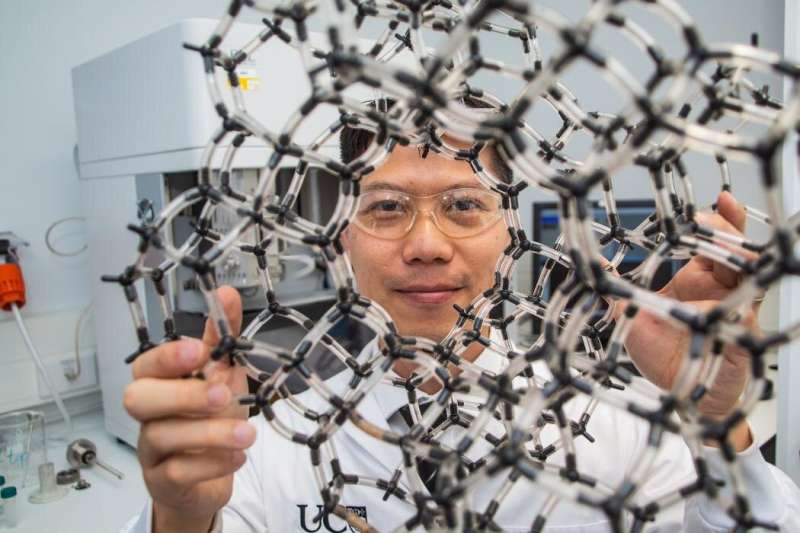Turning food waste into bioplastics

An ingenious new solution being engineered at the University of Canterbury (UC) aims to turn food waste into valuable chemical components that could be used to make bioplastics.
An ingenious new solution being engineered at the University of Canterbury (UC) aims to turn food waste into valuable chemical components that could be used to make bioplastics.
At UC's Department of Chemical and Process Engineering, Dr. Alex Yip is leading research into food waste conversion. He is working collaboratively with Hong Kong Polytechnic University to design and develop a catalyst to achieve this.
"The ultimate objective is to produce a high-value product from food waste," Dr. Yip says. "To date, we have completed a proof-of-concept showing that it's feasible."
The project's goal is to extract three key chemical components, including polylactic acid (PLA) and the organic compound 5-HMF, from the food-waste-stream. These could then be used as building blocks to make sustainable bioplastics with various properties to suit consumer needs.
If this innovative project is successful, food waste could have a new use as raw material for valuable bioplastics.
Bioplastics produced from food waste would be 100% recyclable or fully biodegradable. They could be used for products such as biodegradable bin-liners.
"This waste stream carries both opportunity and financial costs," Dr. Yip says. "What we're trying to do is add value to that waste by converting it into something useful while at the same time responding to another environmental problem in Aotearoa New Zealand, which is the plastic waste problem."
Being able to convert food waste into bioplastics would deliver the dual benefit of lowering greenhouse gas emissions while reducing the amount of non-biodegradable plastics going into landfills.
The research would be a pioneering breakthrough for catalytic conversion of food waste for this purpose. Long term, the objective is to scale-up the process for commercial application.
"We're convinced that our process with this specific catalyst is very promising," says Dr. Yip.
Provided by University of Canterbury




















